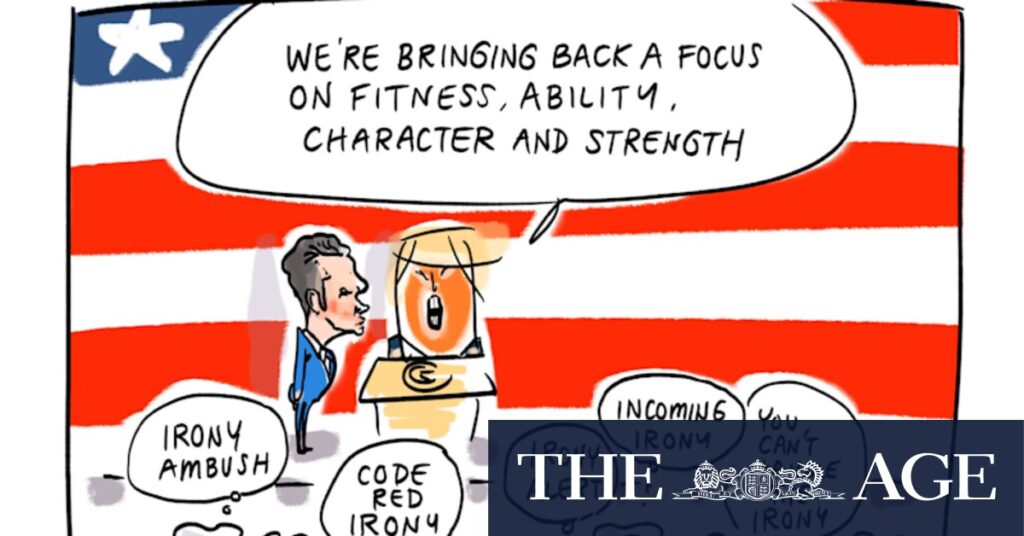
The Coalition’s recent policy direction has sparked significant debate, particularly regarding nuclear energy and internal party dynamics. As Australia prepares for the next election, the Coalition’s stance on nuclear energy and its internal cohesion are under scrutiny.
Matthew Gilbert from Mont Albert suggests that the Coalition’s renewed push for nuclear energy reflects a belief that voters need to reconsider their stance. He notes, “Apparently it was not the Coalition who were wrong about nuclear energy, it was us, the voters. Luckily, they have decided to give us another chance to fix our errant ways. Next election, make sure to get it right.”
Internal Struggles within the Coalition
Noel Butterfield from Eltham highlights the Coalition’s internal divisions, emphasizing the need for stronger leadership. “The Coalition is deeply divided and policy bankrupt,” he writes. Butterfield criticizes Opposition Leader Sussan Ley for lacking authority and suggests that the Coalition must present a united front to effectively challenge the Albanese government.
This internal strife comes at a time when the Coalition is expected to provide a robust opposition to the Labor government. The lack of cohesive policy platforms may hinder their ability to hold the government accountable, giving Prime Minister Anthony Albanese a smoother path.
Controversial Tobacco Policies
Mick Cahill from Fitzroy North raises concerns about the federal government’s approach to tobacco smuggling, comparing it to the war on illegal drugs. “The announcement that the federal government will now be directing similar resources to tobacco smuggling as they do to illegal drugs should alarm taxpayers,” he states.
Cahill argues that the problem stems from substantial increases in tobacco excise over the past 15 years, which have inadvertently encouraged illegal sales. He suggests that licensing tobacco retailers nationally could be a more effective solution.
Youth Crime and Justice System Reform
Jan Marshall from Brighton calls for a reevaluation of how youth crime is addressed, citing John Silvester’s article on successful interventions with young offenders. Marshall criticizes the hardline stance of conservative politicians, arguing that earlier court hearings and targeted treatments could prevent recidivism.
“Particularly offensive to reformers is the hardline attitude of conservative politicians and their supporters who condemn young offenders out of hand,” Marshall writes. She questions how many more years and lives will be wasted without effective reform.
International Relations and Humanitarian Concerns
Graeme Gardner from Reservoir and Roger Christiansz from Wheelers Hill express concerns about Australia’s stance on international issues, particularly regarding Israel and Palestine. Gardner suggests that recognition of statehood should be consistent, while Christiansz accuses the Israeli government of piracy in international waters.
Tim Singleton Norton from Reservoir criticizes the Australian government’s response to the interception of the Global Sumud Flotilla, which aimed to deliver humanitarian aid to Gaza. He argues that Australia should take concrete actions to ensure the safe passage of aid and impose consequences on states that obstruct humanitarian efforts.
Domestic Issues: Graffiti and Urban Aesthetics
Ruth Hargrave from Mont Albert calls for a zero-tolerance policy on graffiti in Melbourne, arguing that it tarnishes the city’s image. She suggests implementing CCTV cameras and other measures to deter graffiti vandalism.
“When are we going to declare zero tolerance for graffiti vandals?” Hargrave asks, emphasizing the need for coordinated efforts to maintain Melbourne’s reputation as one of the world’s most liveable cities.
As Australia navigates these complex political and social issues, the need for effective leadership and cohesive policies becomes increasingly apparent. The upcoming election will serve as a critical juncture for the Coalition and the nation as a whole.







